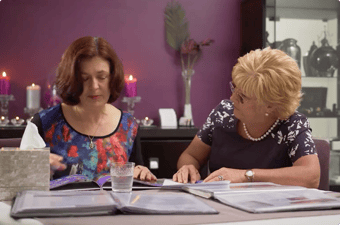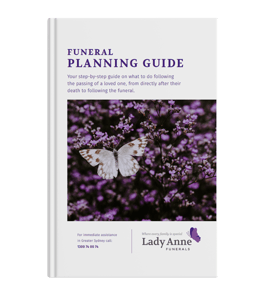In this blog post I thought I would cover a topic that relates to the professional community that we as funeral directors work with. It’s essential that our community and network shares and educate one another on best practices.
Please note that if you have recently experienced the loss of a loved one, you might find this topic uncomfortable in which case you can navigate back to our blog and read some of our other topics.
We at Lady Anne Funerals are always in close contact with others involved in the bereavement process. Specifically in the initial stages of passing, this includes nursing home directors, nurses, doctors and other hospital staff. Most of the time we all have a great working relationship with one another. It is very important that we do. But our relationship can be strained when the usual steps are not understood by everybody involved. One such time this occurs is when funeral homes are contacted too early in the death process.
The initial stage of passing is very delicate to manage. When a loved one passes away, a death certificate must be issued before the loved one is transferred to the funeral home. Issuing a certificate is somewhat easier if the death occurs at a hospital or nursing home during business hours. This is because a doctor is usually within close range. If the passing occurs after-hours, then the registered nurse has two options to obtain the death certificate:
Call an after-hours doctor (if this service is available to the nursing home/hospital)
or
Issue a life extinct certificate themselves
If the nurse is unable to issue the certificate themselves and an after-hours doctor is unavailable, then the nurse must wait until the doctor can see the deceased during the next working morning. And like most things in life, there are often extra circumstances to consider, for example, obtaining a cremation certificate.
A cremation certificate is a very common requirement but this also means the doctor needs to see the deceased at their medical practise. Sometimes this can be a difficult process since many doctors are located in shopping centres or local townships (where there are lots of people around). So getting these authorised certificates can potentially take quite a lot of time.
As funeral directors, our role can only begin once the death certificate had been obtained. So when nursing homes or hospitals call us before having received the death certificate (often during the middle of the night), we cannot do anything. This makes it very difficult and frustrating for both the calling nurses and us because there is a misunderstanding about the correct course of action.
Taking a look around some of the sites of other funeral homes, all seem talk about what’s the first thing to do after a death occurs. Most of the pages explain the steps pretty well. Except nobody mentions the most important part about obtaining a death certificate before calling the funeral home. This is quite concerning isn't it? If we keep leaving important points like this out, then of course there will be misunderstandings between us.
So if you are a health professional that works within our special community, or even if you know someone that does, I encourage you to clarify this point with one another. That way we can keep enjoying working with the caring, compassionate and professional people that we all are.
Have you experienced this misunderstanding in your workplace? Let's work together to make it better.








